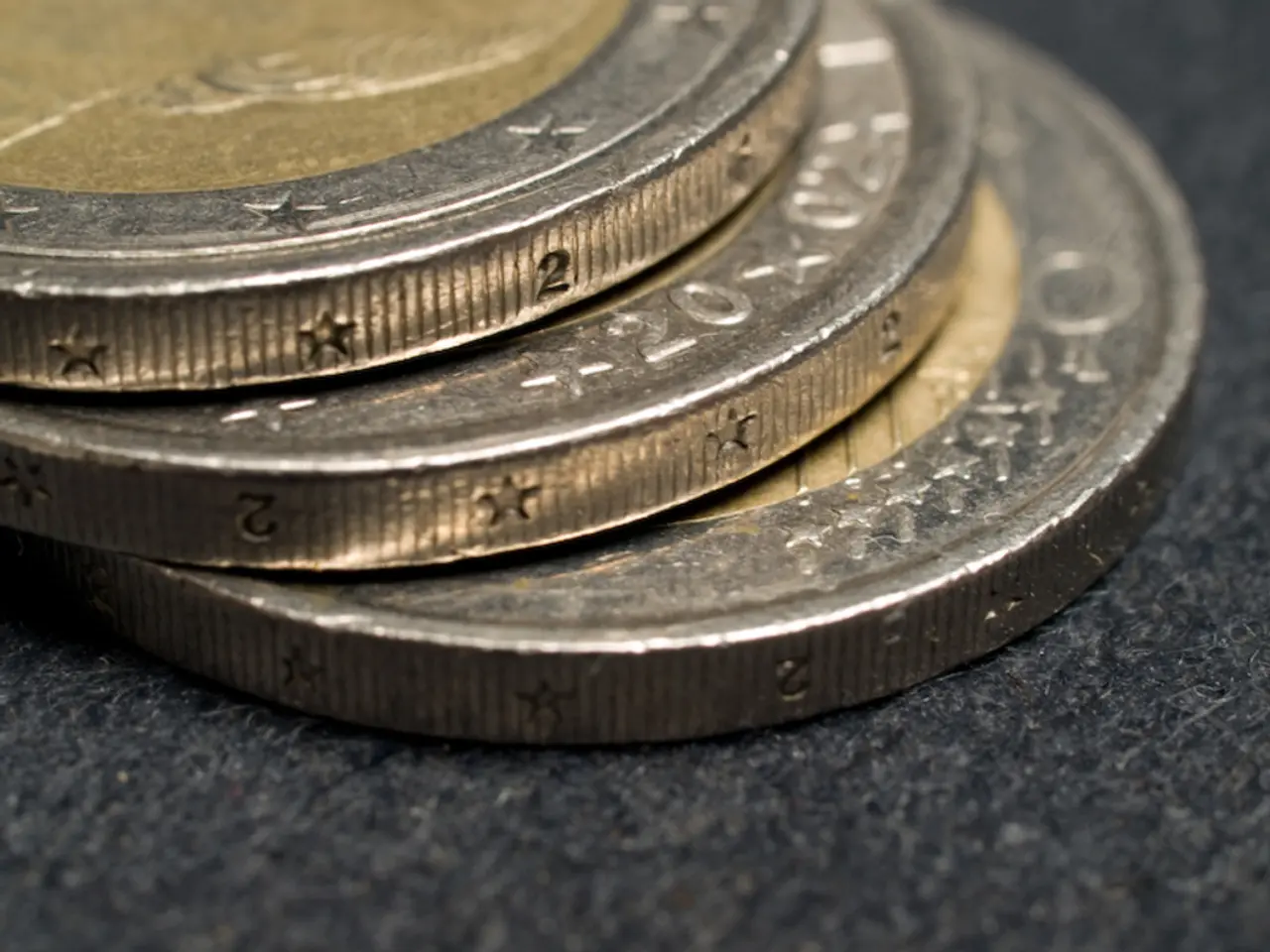GameStop's Predilection for Bitcoin over Gold Explained
Bitcoin, the pioneering cryptocurrency, continues to make waves in the financial world, offering unique advantages that set it apart from traditional assets like gold. Created by the enigmatic Satoshi Nakamoto in 2009, Bitcoin operates on a decentralized network, providing authenticity and security that is unparalleled.
One of the key advantages of Bitcoin as a digital reserve asset, as perceived by market leaders such as Ryan Cohen, is its decentralized, censorship-resistant nature. This makes Bitcoin akin to gold but in digital form, serving as a censorship-resistant store of value, particularly attractive during times of geopolitical friction and attempts at dollar devaluation or de-dollarization.
Another significant advantage is Bitcoin's potential for higher returns and growth. Unlike gold, Bitcoin benefits from structured strategies such as dollar-cost averaging and leveraging equity or debt by reserve companies. This can outperform direct Bitcoin ownership and traditional assets by amplifying returns while mitigating volatility.
Bitcoin also offers instant, cross-border liquidity 24/7, a feature gold cannot match. Maintaining Bitcoin reserves signals leadership in digital assets and Web3 innovation, enhancing geopolitical resilience and attractiveness to fintech investors.
Bitcoin's fixed supply and transparency provide a unique hedge against inflation, monetary dilution, and foreign central bank actions, positioning it as a strategic reserve better suited for the modern digital economy than gold, which is physical and less adaptable.
Large companies and emerging Bitcoin reserve funds employ sophisticated custodial services and comply with regulations to reduce theft and fraud risks, improving the security and reliability of Bitcoin as a reserve compared to self-custody risks.
The trend among corporations to accumulate Bitcoin reflects an increasingly greater perception of its potential to maintain and increase wealth in a world where monetary policies become increasingly expansive. The adoption of assets with a fixed supply, such as Bitcoin, will be key to diversifying and protecting wealth.
The price of Bitcoin has experienced an exponential rise, reaching levels above $111,000 dollars in its current historical peak. Ryan Cohen, CEO of GameStop, has expressed a perspective that Bitcoin is more than just a digital asset, viewing it as a system with unique characteristics that make it a robust option for protecting wealth during times of economic uncertainty.
Bitcoin's durability, as a digital asset, ensures it does not suffer physical wear and tear or loss of weight over time. Its access is global and not restricted by geography, allowing anyone to manage their bitcoins at any time and place with a high level of security.
GameStop recently acquired over 4,000 units of Bitcoin for its corporate treasury, reflecting a strategy based on the portability, authenticity, efficient storage, and fixed scarcity of the cryptocurrency. Bitcoin's success is driven by a combination of technological innovation, institutional adoption, market interest, and its growing perception as a reserve asset amid economic turmoil.
In summary, market leaders see Bitcoin as a digital-age reserve asset that complements or potentially surpasses gold by combining scarcity with programmability, liquidity, institutional rigor, and strategic geopolitical utility in a way traditional gold reserves cannot fully match. The perception of Bitcoin as a long-term store of value is supported not just by Ryan Cohen, but also by key figures in the financial world like Larry Fink and Michael Saylor.
- The potential for higher returns and growth, achievable through strategies such as dollar-cost averaging and leveraging equity or debt, makes Bitcoin an attractive investment option for financial leaders like Ryan Cohen, surpassing traditional assets such as gold in this regard.
- Bitcoin's unique characteristics, including its decentralized, censorship-resistant nature, fixed supply, transparency, and 24/7 liquidity, lend it a strategic advantage as a digital reserve asset in today's digital economy, setting it apart from physical assets like gold.




